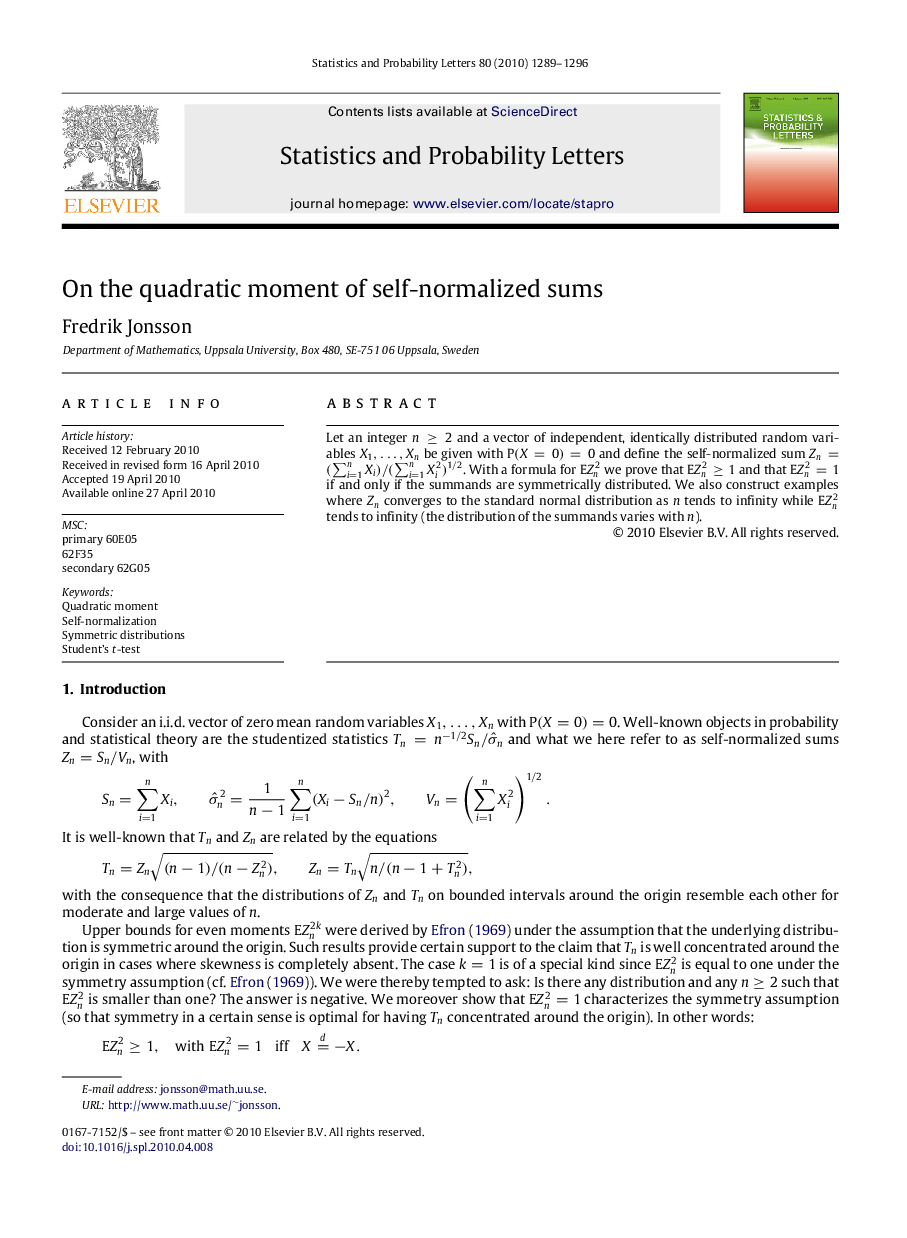| Article ID | Journal | Published Year | Pages | File Type |
|---|---|---|---|---|
| 1152932 | Statistics & Probability Letters | 2010 | 8 Pages |
Abstract
Let an integer n≥2n≥2 and a vector of independent, identically distributed random variables X1,…,XnX1,…,Xn be given with P(X=0)=0 and define the self-normalized sum Zn=(∑i=1nXi)/(∑i=1nXi2)1/2. With a formula for EZn2 we prove that EZn2≥1 and that EZn2=1 if and only if the summands are symmetrically distributed. We also construct examples where ZnZn converges to the standard normal distribution as nn tends to infinity while EZn2 tends to infinity (the distribution of the summands varies with nn).
Related Topics
Physical Sciences and Engineering
Mathematics
Statistics and Probability
Authors
Fredrik Jonsson,
